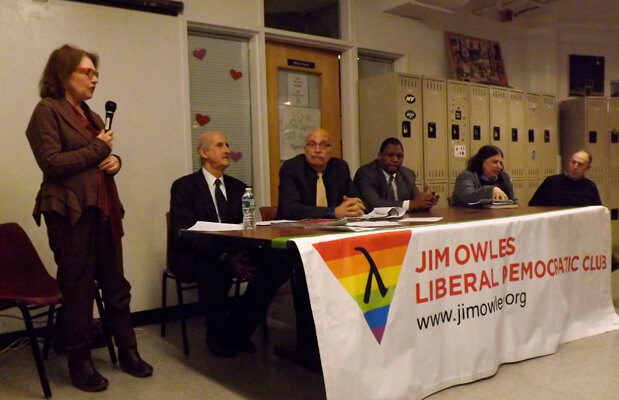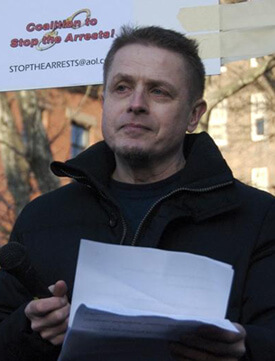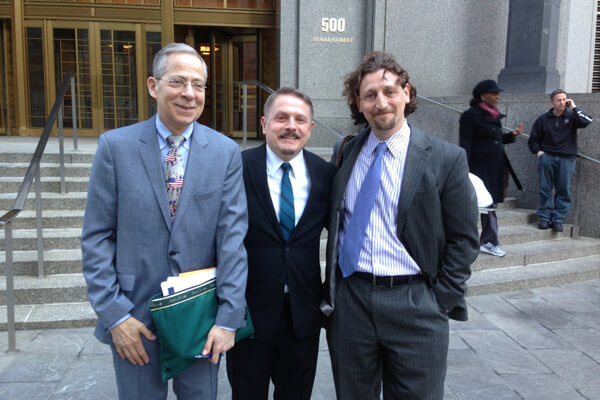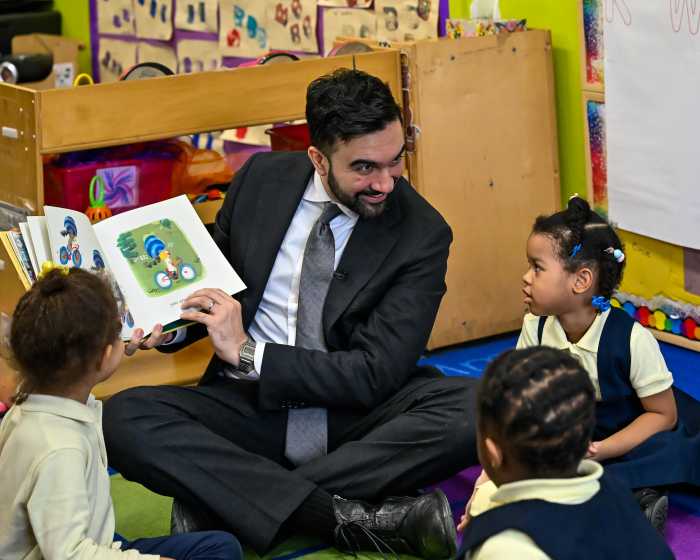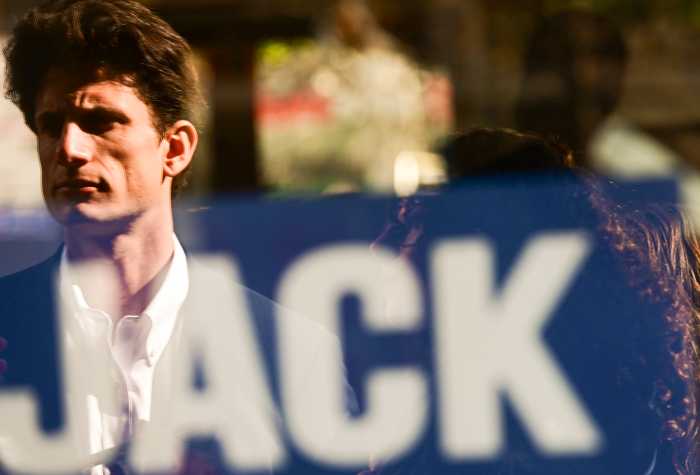Emily Jane Goodman, Jethro Eisenstein, Robert Gangi, Carlton Berkeley, Susan Tipograph, and Leonard Levitt at the Jim Owles club forum on March 19. | GAY CITY NEWS
A discussion among some leading critics of New York City’s police department showcased the extent to which reforming that agency may be very difficult to achieve.
“The police department has institutionalized policies and practices that are designed to target communities of color and poor communities,” said Susan Tipograph, a past president of the New York City chapter of the National Lawyers Guild, at the March 19 event, sponsored by the Jim Owles Liberal Democratic Club, a gay political group.
The leading complaint among reformers is stop and frisk, a tactic that was used by police 685,724 times in 2011. Fifty-three percent of those stopped were African-American and 34 percent were Latino. Police stopped and frisked 97,296 people in 2002.
“Since Michael Bloomberg has become mayor, something like five million people have been stopped and frisked and those five million have been overwhelmingly black and Latino,” Tipograph said.
Mayor, NYPD employ threats of higher crime, terrorism to forestall oversight, transparency, critics agree
In a series of stories, the Associated Press has reported on the NYPD’s extensive surveillance of Muslims in New York City, which has included spying on student groups on college campuses outside of the city and state.
“Both of those enterprises treat an entire population as suspect,” Jethro Eisenstein, an attorney who has been litigating a case on police surveillance powers for 42 years, told the crowd of roughly 50 who attended.
The NYPD has defended stop and frisk as an essential tool in keeping crime low in New York City. Since 2001, the department has presented itself as on the front lines of fighting terrorism and warned that its tactics are necessary in stopping further attacks.
City Hall is using “the threat of terrorism as a club” to squelch criticism of some practices, Eisenstein said.
“The threat of terrorism is an excuse for not thinking critically,” he said.
A major obstacle to changing these police practices is that voters clearly want crime low just as they clearly do not want another terrorist attack in New York City. Mayor Michael Bloomberg and Rudy Giuliani before him have consistently defended the NYPD while reaping the political benefits of low crime rates. Any proposals to limit the NYPD’s use of these tactics must confront the political reality that elected officials also like low crime rates.
On March 19, City Council Speaker Christine Quinn, an out lesbian who is also a candidate for mayor, proposed establishing an inspector general to oversee the NYPD. The panelists were generally skeptical about that proposal because the inspector general would be a mayoral appointee.
Bloomberg promised to veto the bill and responded with rhetoric that was predictable, but also difficult to overcome.
“We cannot afford to play election year politics with the safety of our city, and we cannot afford to roll back the progress of the past 20 years,” Bloomberg said at a March 20 press conference. “Make no mistake about it. This bill jeopardizes that progress and will put the lives of New Yorkers and our police officers at risk.”
The City Hall press office distributed the complete text of Bloomberg’s comments to all reporters on its list via email.
Activists have organized by getting community groups, churches, and other organizations that are hosting mayoral candidates to ask about these practices and they have circulated petitions opposing the tactics.
The issue was a topic at the March 20 Democratic candidate forum sponsored by five LGBT political clubs and Gay City News.
“Political organizing is critical to police reform,” said Robert Gangi, director of the Police Reform Organizing Project at the Urban Justice Center.
The NYPD has also been resistant to disclosing information about its practices. As any reporter –– including reporters at Gay City News can attest –– the department has largely ceased responding to Freedom of Information requests.
“Nobody knows what is going on in the police department,” said Leonard Levitt, a former newspaper reporter who now blogs at nypdconfidential.com.
The city aggressively defends lawsuits that charge the police with wrongdoing. Even if such suits are successful, they do not necessarily lead to changes in policy or practices.
“It does not appear that suing cops makes a difference,” said Tipograph, who has brought such suits. “I do think that there needs to be some kind of systemic change.”
The other panelist was Carlton Berkeley, a former NYPD detective, and the discussion was moderated by Emily Jane Goodman, a former state Supreme Court judge.

